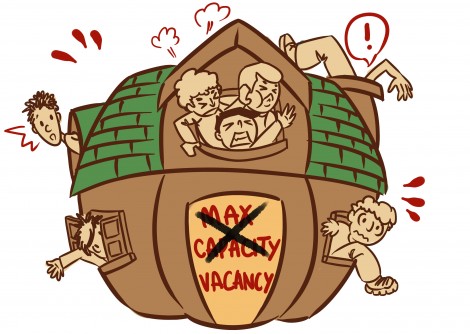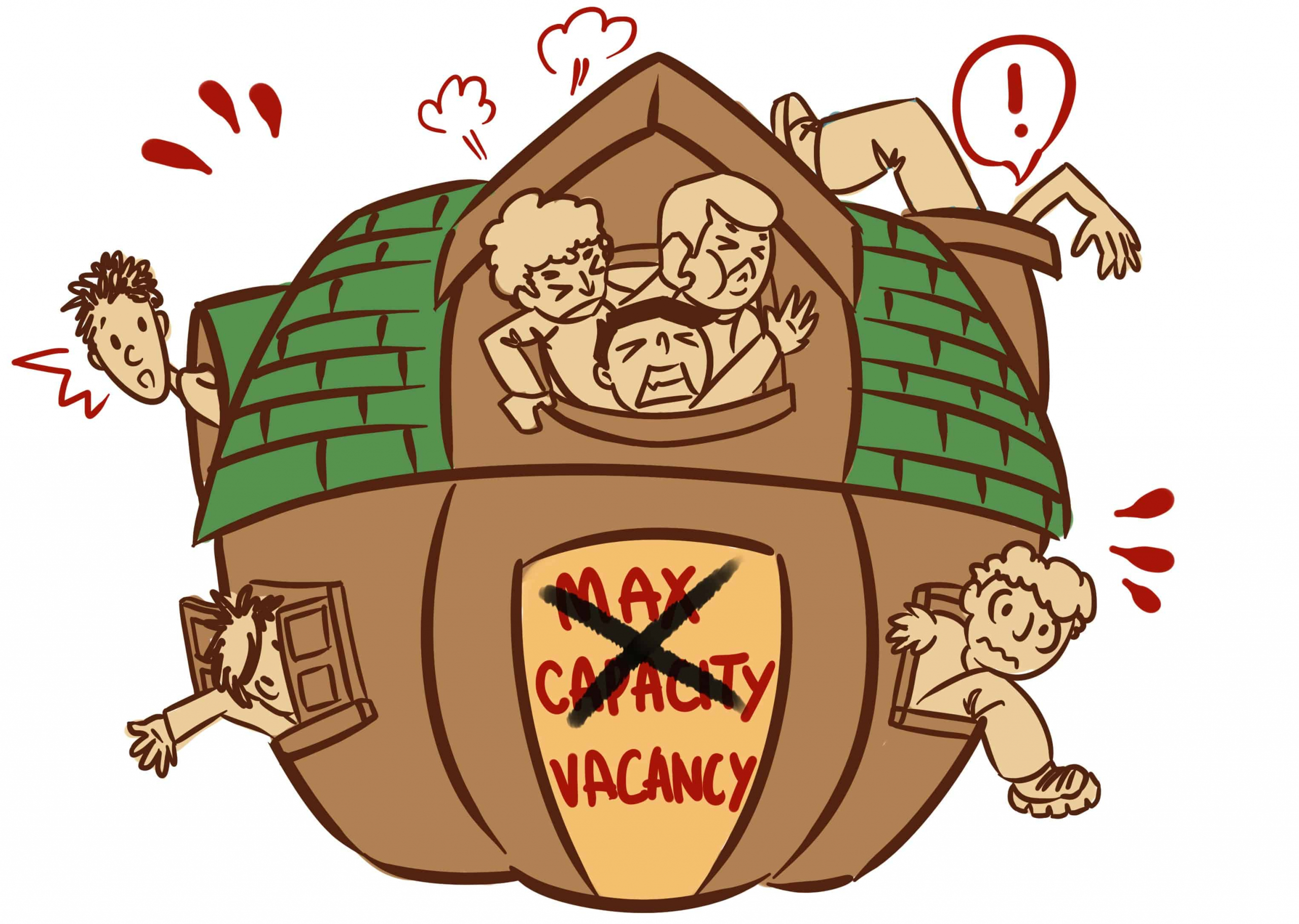The University of Toronto Scarborough (UTSC) campus is front and centre of a political battle at city hall that is delaying action on the issue of illegal rooming houses affecting students that have few other housing options.
Before the City of Toronto was amalgamated in the late 1990’s, each municipality (Toronto, Etobicoke, York, Scarborough, and North York) had its own bylaws regarding rooming houses. After amalgamation, bylaws were not harmonized — leaving a number of municipalities with conflicting laws regarding the legality of rooming houses.

NANCY JI/THE VARSITY
Shelly Carroll, councillor for Don Valled East, introduced a motion early in November to the city’s Planning Committee that would have seen illegal rooming houses in Toronto regulated and built in zones that were classified for that purpose. The motion was sent back for public consultation, leaving it to be debated by council at an unforeseen date.
“The planning committee wanted to see whether or not the city could enforce any of the regulations and whether or not there is enough money,” said Ward 44 councillor Ron Moeser. He says he has been dealing with the issue for 22 years, the entire time that he has been in office.
“My main concern is the safety issue, and then how does it fit into our neighbourhood,” he said. “Many people are worried about the single family nature of the community,” said Moeser, who added that there is no easy solution to the issue.
The heart of the issue revolves around whether or not community members feel like there is space in a family community for the burgeoning student community that has developed around Military Trail. There have been noise, parking, and crowding issues that have been brought to light as a result of the increased density of the area.
However, for Scarborough Campus Students’ Union vice-president, external, Guled Arale, that reason is not entirely justified.
“You can’t ignore the fact that we have an institution like the University in Scarborough in the area,” he said.
While he has not been to any of the rooming houses near campus, Arale says that housing is always going to be a big issue because of the rising cost of tuition and cost of living. “Housing is not an issue that is going to be solved by one thing. We need to work with the community and people in the different levels of government to address issues when it comes to housing,” Arale said. “Every stakeholder could be doing more.”
However, while Toronto city council continues to debate the issue, Phil Nazar, housing manager for the Toronto Centre for Christian Resources, has been trying to get something done about it. “What our organization is trying to push forward is to allow rooming housing in all of Toronto,” said Nazar.
“Affordable housing in Toronto is a huge issue, not only for students, but for people in general,” said Nazar. “There are over 150,000 people on the waiting list for social housing in Toronto,” Nazar said, adding that legalizing rooming housing is a relatively inexpensive solution to increase housing. “It doesn’t have to be built, but just allowed.”
Rooming houses are only allowed by law in the old city of Toronto, parts of Etobicoke, and parts of York, said Nazar. “It saves housing for people, because when rooming housing exists that is not legal, there is no mechanism to inspect the standards that rooming housing ought to have.”
“The answer isn’t to close these places, it’s to allow and regulate them. It makes no sense to allow them in some places but not in others,” said Nazar. “Something has to be done. There needs to be will to either build for or allow affordable housing. There are all sorts of ways to make this happen, but it requires political will,” said Nazar.
Student residences came up during a town hall meeting, where students and faculty asked questions about the future plans for residences on campus.
“We showed our preliminary plans for a residence for 700 beds, with a full cafeteria, which would be ready by 2017 built at the north campus” said Don Campbell, media and relations officer at UTSC.
The current enrollment in UTSC is 11,700 undergraduates, with the total number of residence beds coming in at 765.
Campbell said that in addition to the university and community committee, created to address concerns with students living within the Highland Creek community, the university is also providing services to students regarding their rights and responsibilities as tenants.
“This includes educating students on how to conduct a search for off-campus housing and to create awareness about their rights as tenants and the legal responsibilities of their landlords.”


